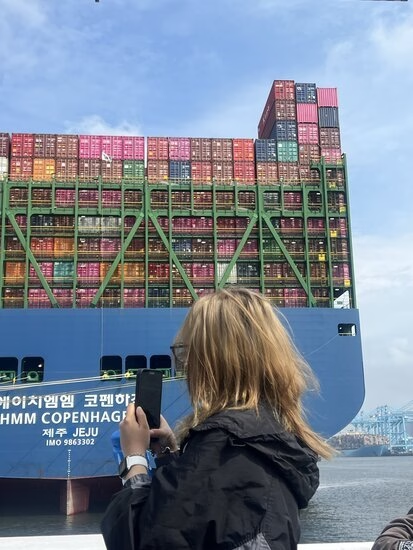General information
| Duration | 27 July - 21 August 2026 |
| Language | English |
| Tuition fee | € 5800 for 4 weeks, including tuition & service package Note: There is no scholarship available for this course |
Service package (accommodation, insurance, local logistics) | The service package includes: hotels, lunch, insurance cost, bus transfer drop in & drop off at Schiphol, and excursions. This fee is included in the tuition fee mentioned above. |
| Target group | Bachelor & Master students from all nationalities |
| Application deadline | Visa required: 1 March 2026 No visa required: 1 July 2026 |
| Course coordinator | Dr Qian Ke (ke@ihs.nl) |
| Contact | admission@ihs.nl |
Discounts
IHS and EUR students (current and upcoming) can benefit from €1000 discount on the August 2026 edition of the summer school.
Interested?
What will you learn?
- Urban resilience and adaptation: Developing a conceptual understanding of urban Climate change and urbanization: Understanding the drivers and impacts of climate change on urban areas, including how urbanization contributes to climate change.
- Sustainable urban planning and design: Exploring the role of sustainable urban planning and design in promoting climate resilience, including green infrastructure and spatial adaptation.
- Policy and governance: Understanding the importance of policy and governance in promoting urban resilience and adaptation, including the roles of government, civil society, and the private sector.
- Case studies: Examining case studies from different cities and regions around the world to understand how urban resilience and adaptation are being implemented in practice.
Teaching methods
The following teaching methods will be used:
- Interactive lectures
- Discussions and debates
- Workshops on serious game
- Educational excursions
- Exercises
Skills acquired
After this course, you may acquire a range of skills that can be applied in various contexts:
- Analysis and problem-solving skills: to analyse complex problems related to urban resilience and climate change adaptation and develop strategies and solutions to address these challenges.
- Communication skills: to communicate complex concepts and ideas related to urban resilience and adaptation to a range of audiences, including policymakers, practitioners, and community members.
- Collaboration and teamwork skills: to work collaboratively and in teams to develop and implement effective adaptation strategies and programs.
- Critical thinking: to critically evaluate different approaches to urban resilience and adaptation and to identify strengths and weaknesses in different strategies.
Benefits of the course
The course will provide its graduates with a competitive edge in the job markets as it views and addresses climate change resilience in urban cities in a holistic way. It brings a different viewpoint on the topic and connects urban resilience development to not only economic issues but social and environmental issues as well. The course finally allows the linking of theory to practice; this is obtained from real-life case studies and inputs from various municipalities and organizations. This allows its graduates to be well-grounded.
What will you gain?
- An international vision and understanding of climate change resilience and best practices in the Netherlands and other countries worldwide
- The knowledge and skills required to develop integrated strategies for climate resilience and urban development
- A certificate of completion by IHS, Erasmus University Rotterdam
- Joining the 10,000 IHS alumni international family of urban professionals from 145 nationality
Who should take the course?
- Students from different academic and professional backgrounds wish to better their understanding of climate change resilience and sustainable planning to benefit future generations from all socio-economic groups.
- We also welcome upcoming master's students who intend to enrol in or are already enrolled in the MSc in Urban Management and Development (UMD) programme for 2026-2027. They can view this as a preparatory course to familiarise themselves with the content and adapt to the learning environment.
Admission requirements
Students should be enrolled in a bachelor’s (preferably 3rd and 4th year), master’s or PhD degree programme in a field related.
If English is not your mother tongue, an English language test or, in some cases, other proof of English proficiency is required. We accept certificates from TOEFL and IELTS as official language tests.
Institutional TOEFL code: 7633
- 75 (paper-based)
- 232 (computer-based)
- 90 (internet based, with writing sub-test at least 20)
- Score: 6.5, no sub-test lower than 5.5 (Writing sub-test at least 6.0)
Student reflections
"When I learned the story behind the Dutch Delta Project, I was deeply shocked by the national spirit and great significance it represents. It was truly an educational and beautiful trip!"
- Jinhai Li, Participant of Summer School 2024
"I loved all the excursions we had. The view of the Kinderdijk was so beautiful and left everyone feeling inspired. Our trip to Futureland was great and allowed me to see the spectacular harbour up close."
- Duan Wang, Participant of Summer School 2024
IHS Summer School 2024




